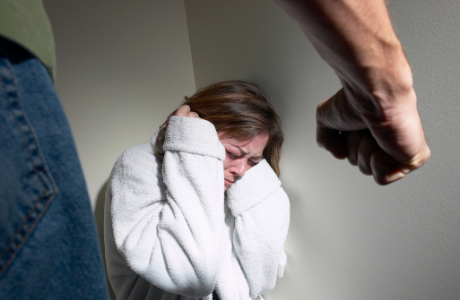The recently released IPSOS Global Poll [1] shows that a majority of Australians (63%) believe that religion does more harm than good. The Poll also indicates that we are comfortable, in our multicultural society, in being around people with different religious beliefs to our own; that is of course for those of us who have a religious affiliation. The Poll also shows that we are a shrinking number, with almost 40% of Australians saying they have no religion or religious attachment.
The statistic that concerns me the most is the number of people in Australia who agree with the statement, “Religion does more harm in the world than good.” It concerns me, but it doesn’t surprise me. Religion, of course, includes all faiths and not just Christianity. Uppermost in people’s minds, no doubt would be the increase in religion-inspired terrorism, as well as religious infighting (think Sunni/Shia; Protestant/Catholic). Religious persecution and wars, evils committed against others by religious authorities and religions (or religious people) dictating to others how they should live also come into the equation. Some of these undoubtedly resonate with many Australians.
Over the past few years we’ve witnessed Islamist terrorism at home, and overseas; we regularly hear about religious wars; we see people of one religion’s brutal treatment of those whose faith is different (like the actions of the Buddhist Burmese toward the Muslim Rohingyas). In Australia, we’ve had the Royal Commission into Institutional Responses to Child Sexual Abuse that has highlighted the awful treatment that thousands of children have suffered at the hands of priests and religious ministers. Almost 2,000 Catholic Church figures were implicated in the child sex abuse report, where seven per cent of Australia’s Catholic priests were accused of abusing children in the six decades since 1950. In total, between 1980 and 2015, 4,444 people alleged incidents of child sexual abuse relating to 93 Catholic Church authorities. The abuse allegedly took place in more than 1,000 institutions. [2] And that’s just one denomination in one religion.
On top of all this is the weariness I hear from many of my non-religious friends of being told how they should live – or not live – by people of faith. Add all of these things up, and it’s no surprise that 63% of Australians believe religion does more harm than good.
The words “religion” and “religious” are used sparingly in the Bible. Sometimes the Bible refers to religious people who are superstitious (as in Acts 17:22; 25:19). Other times religion denotes self-imposed restrictions or human-made faith (Colossians 2:23). But James, the half-brother of Jesus, gives the most interesting insight into what it means to be truly religious, “If you claim to be religious but don’t control your tongue, you are fooling yourself, and your religion is worthless. Pure and genuine religion in the sight of God the Father means caring for orphans and widows in their distress and refusing to let the world corrupt you.” [3] Notice the contrast between “worthless religion” and “pure and genuine religion.” I dare say what Australians are referring to when they say “religion does more harm than good” is the incompetent, impure and spurious kind that even the Bible condemns.
Consider the three things that James says define religion that is pure and genuine: (1) people who control their tongue; (2) people who care for orphans and widows; and (3) people who are “free from censure, irreproachable, free from vice, unsullied.” [4] If you’re a religious person, does this describe you? Does it define the religious people you know? A principal reason why there are an increasing number of people in Australia who have no religion or religious affiliation is that they’ve seen way too much false faith rather than the real thing. They’ve heard religious people argue & condemn. They’ve read the nasty blogs and heard about the abuse of orphans and widows. They watched on while people who professed a faith have been found incorrect, corrupt, perverted and disgraced.
What the world needs to see is a genuine religion where they hear kind words of inclusion, not exclusion; where they appreciate our good works directed to the poor, disenfranchised and marginalised people of society (you know, the ones Jesus hung out with). They’re not looking for us to be perfect but they are disappointed when we pretend to be but then don’t live up to the pretence. As Andrew F. Dutney of Backyard Theology puts it, “Religious organisations need to get on with doing what they do – developing communities, practicing their faith, serving their own members and the wider community at real points of need. And they need to do what they do with integrity, fairness and transparency. That will be more than enough for Australians.” [5] I agree!
[1] https://www.ipsos.com/en-au/ipsos-global-study-shows-half-think-religion-does-more-harm-good
[2] https://www.theguardian.com/australia-news/2017/feb/06/4444-victims-extent-of-abuse-in-catholic-church-in-australia-revealed
[3] James 1:26-27 NLT
[4] Kenneth Samuel Wuest (1893 – 1962), a noted Christian New Testament Greek (Κοινή) scholar
[5] https://andrewfdutney.wordpress.com/2017/10/13/religion-does-more-harm-than-good-in-the-world-agreed/














